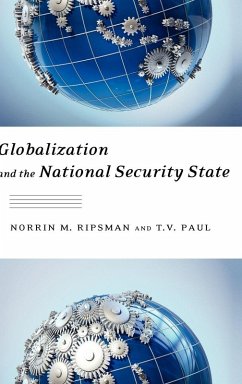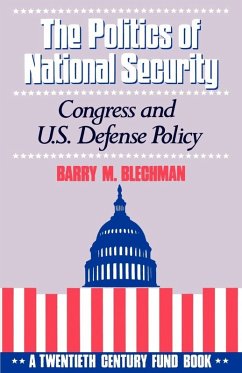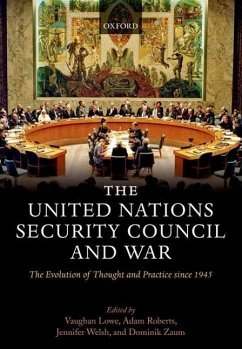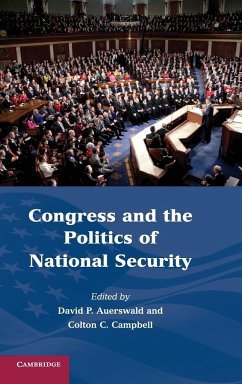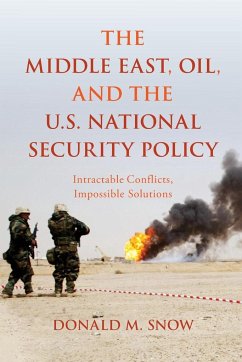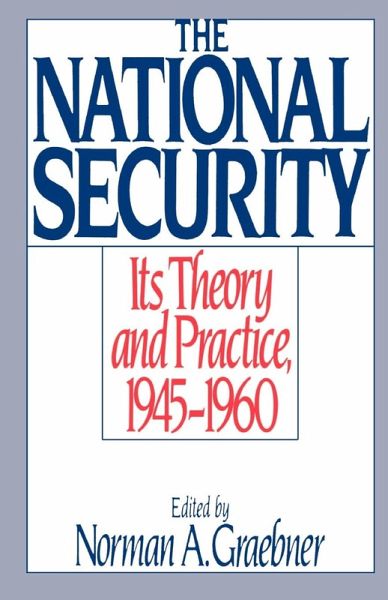
The National Security
Its Theory and Practice, 1945-1960
Herausgeber: Graebner, Norman A.
Versandkostenfrei!
Versandfertig in 1-2 Wochen
40,99 €
inkl. MwSt.

PAYBACK Punkte
20 °P sammeln!
The Allied victory in World War II led to a feeling in the US of grandeur and omnipotence, as America became the most powerful country in recent history and US dollars were used to rebuild war-torn Europe. Russian acquisitiveness and ideology, however, soon changed the national euphoria to fear. As Washington reverberated with reports of a planned Communist monolith, national defence and negotiation from strength became the rallying cries of the country. This collection of essays explores the national security policies developed in response to this threat by the Truman and Eisenhower administr...
The Allied victory in World War II led to a feeling in the US of grandeur and omnipotence, as America became the most powerful country in recent history and US dollars were used to rebuild war-torn Europe. Russian acquisitiveness and ideology, however, soon changed the national euphoria to fear. As Washington reverberated with reports of a planned Communist monolith, national defence and negotiation from strength became the rallying cries of the country. This collection of essays explores the national security policies developed in response to this threat by the Truman and Eisenhower administrations. More pointed and analytic than any other book on the subject, it shows clearly that the makers of Cold War policy were motivated by assumptions of a global Soviet danger. It also examines the nature of US security policy and points to the growing gap between the ends of a global security policy - to protect Western democracy from the 'Red Menace' - and the means - a nuclear strategy with limited applications.





